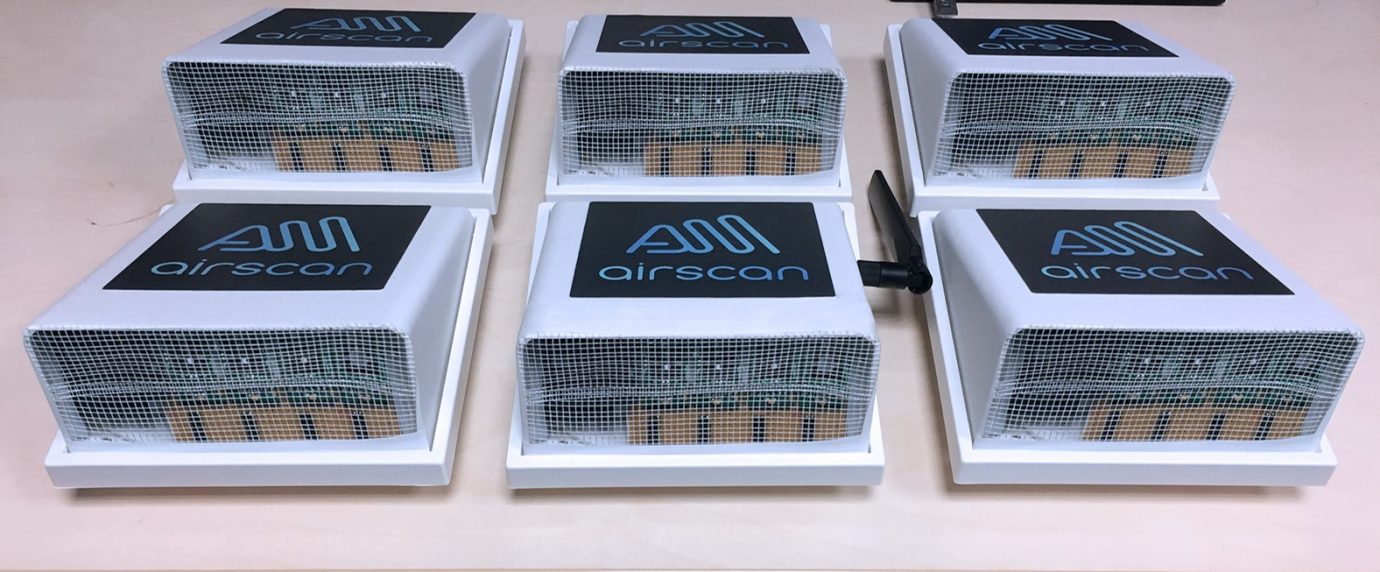business resources
Innovative Air Pollution Monitoring System On Trial in the UK
8 Sept 2022, 1:59 am GMT+1
An innovative pilot scheme to monitor air pollution levels across Eastleigh is being launched this month powered by cutting-edge technology developed by a Hampshire-based company.
Iknaia, a technology firm with offices in Chilworth, has launched a low-cost mobile air quality monitoring system, which can detect levels of pollution on the Borough’s streets in real time. Eastleigh is the first area in the UK first to trial the new technology.
The system is the latest addition to Iknaia’s award-winning Airscan, which was recently used to communicate live journey times to motorists on the M3 Smart Motorway project. The new version adds an air quality monitoring module, which uses high-performance, reliable, low-power gas sensors to detect a range of noxious gases in the atmosphere.
Unlike previous static systems, the Airscan sensor can be easily moved around, which will enable the Council’s Environment Team to collect data in multiple locations and assess the impact that traffic congestion is having on the air we breathe.
Founder of Iknaia, Julia McNally, says, “Air pollution largely comes from road traffic and is linked to heart disease and lung problems, including asthma. Our objective is to combine both types of data - journey time and congestion monitoring, together with air quality.
“This will provide local authorities with data that will enable them to make choices such as building new homes away from busy roads, consider closing roads at certain times. Also by providing real-time data to motorists will help them make decisions about the routes they choose to take that can impact their health.”

The Airscan sensor can be easily moved around, which will enable the Council’s Environment Team to collect data in multiple locations. The initial trial of the cutting-edge technology goes live at sites around Eastleigh throughout November, which is welcomed by Eastleigh Borough Council’s Environmental Lead, Bret Willers.
“The Council has a duty to monitor air pollution throughout the Borough. Currently we have several real time static monitoring stations in locations that are chosen to target areas where pollution is expected to be high” says Neil Scott Senior Pollution Control Specialist. “We are looking forward to working with Airscan as it offers us the opportunity of being able to monitor air quality in multiple locations and enable us to see real-time changes in air pollution as they happen. Airscan will also enable us to view traffic congestion and air quality on one single dashboard”.
“We will be evaluating the effectiveness and accuracy of the system over the coming months” says Bret Willers Lead Specialist for the Environment “this could be a very cost effective tool for local authorities to assist the management of air quality”.
The typical cost of a static air quality monitoring station is over £50k with annual maintenance costs of thousands of pounds each year. Airscan is low cost, easy to set up and install and extremely mobile. Airscan won’t replace the traditional monitoring stations, but aims to provide a solution that can cover more space and can be deployed on roads, construction projects and new housing sites and will enable clients to cover more space, quickly and cost effectively. The trial is being part funded by an Innovate UK grant which was awarded to Iknaia earlier this year as part of its Infrastructure Systems competition.
Iknaia’s team of engineers will also install a LoRaWan network, which is a Low Power Area Network (LPWAN) for wide area communication between remote sensors and gateways connected to the network. This will remove the cost of expensive monthly SIM cards and make Airscan even more cost-effective.
Read More:
advantage online lending network
benefits of having a dot service website
Share this
Contributor
Staff
The team of expert contributors at Businessabc brings together a diverse range of insights and knowledge from various industries, including 4IR technologies like Artificial Intelligence, Digital Twin, Spatial Computing, Smart Cities, and from various aspects of businesses like policy, governance, cybersecurity, and innovation. Committed to delivering high-quality content, our contributors provide in-depth analysis, thought leadership, and the latest trends to keep our readers informed and ahead of the curve. Whether it's business strategy, technology, or market trends, the Businessabc Contributor team is dedicated to offering valuable perspectives that empower professionals and entrepreneurs alike.
previous
Why Open Source Is Good For Business
next
Starting A Business From Home: A Simple Guide